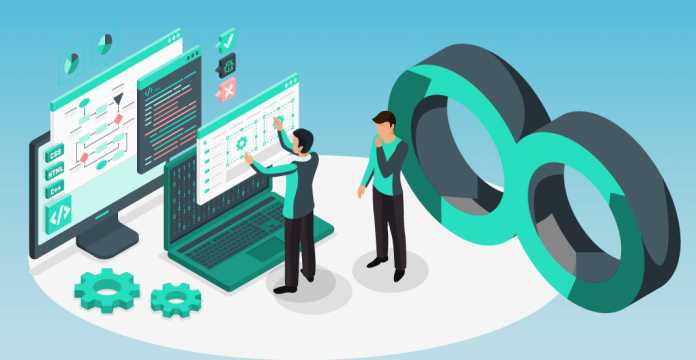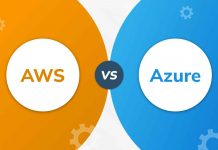
DevOps Lead Engineer handles the entire DevOps lifecycle and is accountable for the implementation of the process. They should possess sound knowledge of various tools and technologies used by other team members.
A DevOps Lead Engineer is liable for automating all the manual tasks for developing and deploying code and data to implement continuous deployment and continuous integration frameworks. They are also held responsible for maintaining high availability of production and non-production work environment.
Responsibilities of a DevOps Lead Engineer
Here are a few responsibilities of a DevOps Lead Engineer that you should know about:
- The DevOps Lead Engineer is responsible for creating software deployment strategies that are essential for the successful deployment of software in the work environment. They identify and implement data storage methods like clustering to improve the performance of the team.
The Lead DevOps engineer is responsible for coming up with solutions for managing a vast number of documents in real-time and enables quick search and analysis. He also identifies issues in the production phase and system and implements monitoring solutions to overcome those issues.
- The DevOps Lead Engineer will stay abreast of industry trends and best practices. They conduct research, tests, and execute new techniques which could be reused and applied to the software development project.
- The DevOps Lead Engineer is accountable for designing, building, and optimizing automation systems that help to execute business web and data infrastructure platforms.
The DevOps Lead also develops self-service solutions for the engineering department to deliver software with excellent quality and speed. They are also involved in designing and developing scaling strategies, automation scripts, and solutions to implement, streamline, and execute the software.
- The Lead DevOps Engineer is involved in creating technology infrastructure, automation tools, and maintaining configuration management. They are accountable for conducting training sessions for the juniors in the team, and other groups regarding how to build processes wherein the dependencies are showcased in the code. They are also answerable for the architecture and technical leadership of the complete DevOps infrastructure.
The Lead Engineer also deals with tasks like management and development of continuous integration and deployment solutions across various sites.
- The primary role of the DevOps Lead is to assist the junior members of the team who are aware of technologies like Python, MYSQL, MongoDB, Scala, Ruby, and so on. They also train development department personnel about reusable tools and patterns.
To cater to the engineering department’s quality and standard, the DevOps Lead needs to implement lifecycle infrastructure solutions and documentation operations.
Qualification
- A DevOps Lead Engineer should have a master’s in Computer Science or any other field.
- They should have ample work experience in the same domain.
Work experience
- Candidates working for this position should possess at least 5 years of work experience as a DevOps Engineer.
- Candidates must possess ample knowledge and experience in system automation, deployment, and implementation.
- Candidates must possess experience in using Linux, Jenkins, and ample experience in configuring and automating the monitoring tools.
- The candidates should also possess experience in the software development process and tools and languages like SaaS, Python, Java, MongoDB, Shell scripting, Python, MySQL, and Git.
- Candidates should demonstrate knowledge in handling distributed data systems. Examples: Elastisearch, Cassandra, Hadoop, and others.
Skills required to become a DevOps Lead Engineer
Communication skills
The DevOps Lead Engineer role should possess excellent communication skills, which is essential to execute his duty to the juniors in the team. Having excellent communication skills will ensure that information is conveyed clearly, which in turn determines the team’s performance.
Terminologies
Having a sound knowledge of various concepts and terminologies used in DevOps will help you to get prepared for the DevOps Lead Engineer role.
Interpersonal skills
A DevOps Lead Engineer must be a result-oriented individual, be self-motivated, and be proactive beyond their duty. They should be capable of multi-tasking, meeting deadlines, should remain calm during uncertainties, and working in a collaborative environment, creative, highly analytical, and strategic thinkers.
Infrastructure
Before taking up any action or plan, you must be knowing about the infrastructure of your organization.
There are two types
Cloud:
For a DevOps Lead Engineer, it’s essential to have sound knowledge of cloud infrastructure. AWS has a high number of in-built web services.
Traditional:
Should possess knowledge of fundamental Unix/Linux, monitoring, editing, and command-based tools is essential.
People skills
A DevOps Engineer should be a people person who is capable of developing a good rapport with other people in the organization. He should inspire trust and confidence in his seniors, juniors, and other members of the team, who then follow his judgments, directives, and insights.
Technical skills
Candidates aspiring to this position should be technologically adept, have computer skills, and possess expertise in scaling distributed data systems. Desired candidates should possess skills in configuration, maintenance, and securing Linux systems. They should be versed in scripting languages such as Ruby and Shell
Candidates should possess sound knowledge of automation tools like Juju, Ansible, Chef, and so-on. They should also have a thorough understanding of Google Cloud Platforms, Hadoop, NoSQL databases, and big data clusters.
Integration skills
The DevOps engineer should be capable enough to make use of all mentioned above skills to create an integrated and completely automated work environment. Starting from source code management to deployment state, i.e., Continuous Delivery, Continuous Integration, and Continuous Deployment, it has to be ensured that there is no unnecessary intervention in between.
DevOps Lead Engineer Salary
DevOps Lead Engineer is one of the most highly demanding and paid job roles in the world. The salary of these professionals depends on various factors like – organization, geographical location, and skills.
The annual median salary of a DevOps Lead Engineer is $80,000 from October 2019 till 7th April 2020.
Conclusion
DevOps is widely accepted due to its rich culture and practice, it helps the employees to communicate and collaborate amongst employees from entry-level positions to higher management levels.
Enterprises find it difficult to hire DevOps Lead Engineers with the right set of skills appropriate to their job roles. There is a lot of demand for DevOps Lead Engineers as there is a scarcity of skills and experienced professionals.
If you are an amateur in the field of DevOps, it is better suggested to focus on learning and enhancing your skills by taking up popular DevOps Certificationcourses that align with your job role and career aspirations. A developer can become a DevOps Engineer as they can thoroughly understand the developer’s requirements quickly and aid the successful completion of software projects.
Some of the popular DevOps certification courses that professionals can take up are:
- DevOps Professional Certification Course














